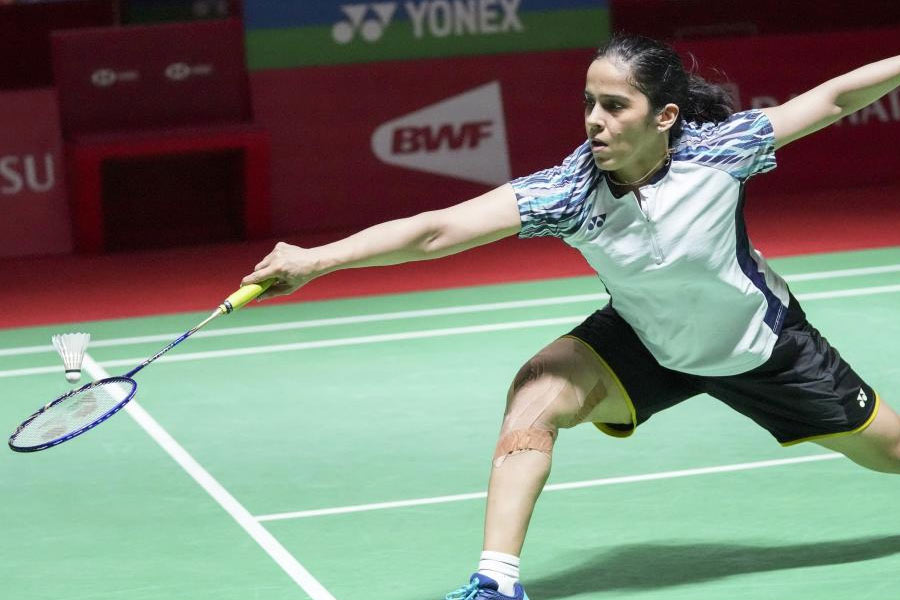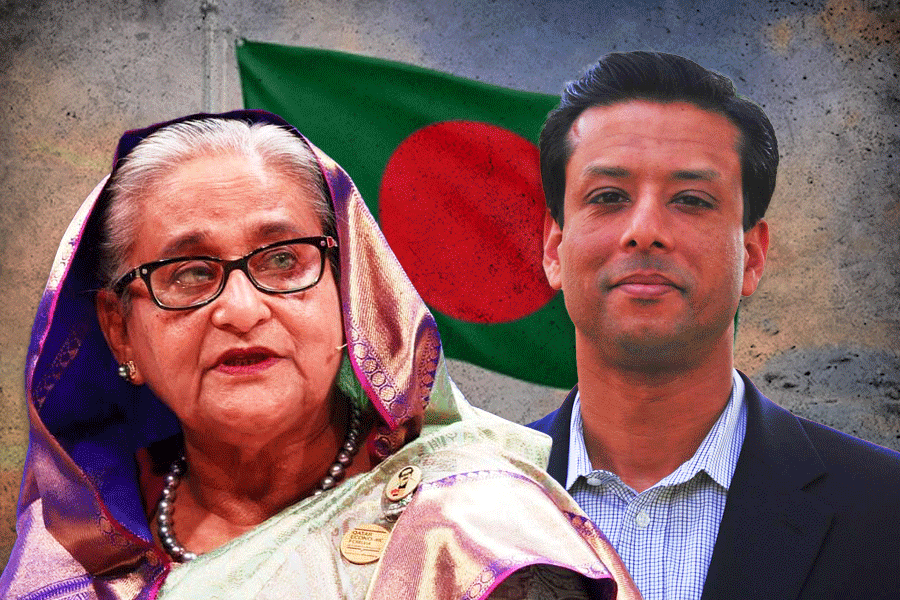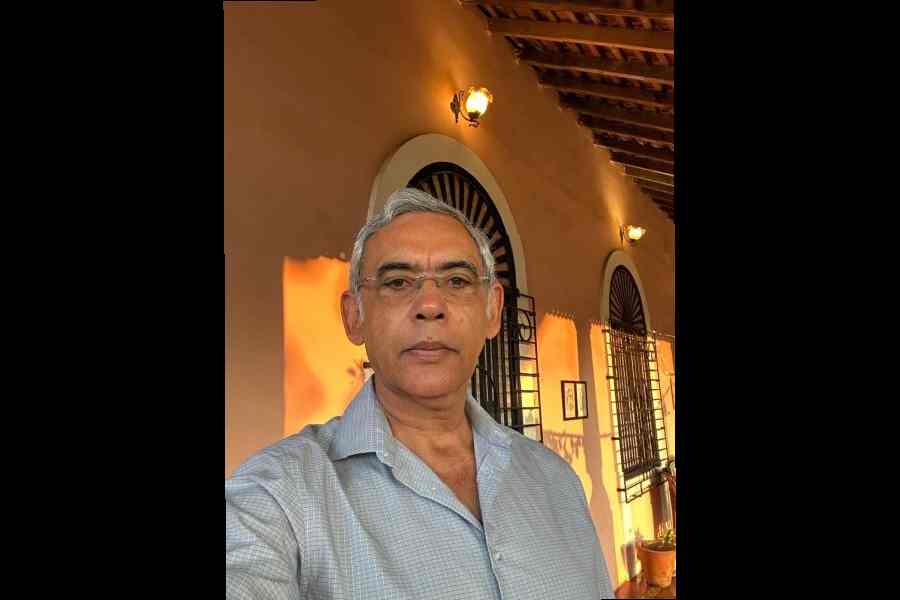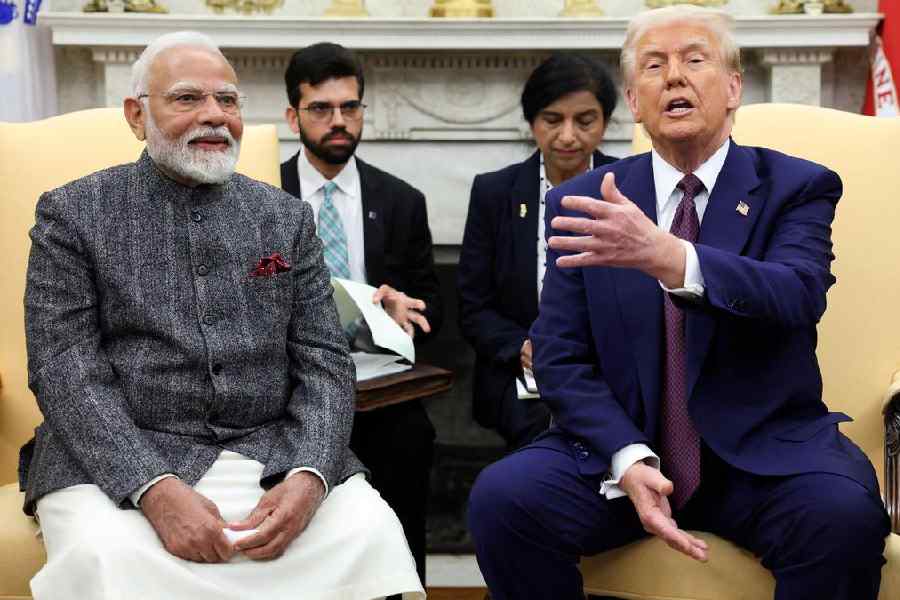Be prepared to endure pain if you want to become a champion. Games on the mobile phone will not prepare you for that, Saina Nehwal, the trailblazing shuttler, told a bunch of young badminton players.
The Olympian was at The Newtown School on Tuesday.
“A sportsperson’s life is not easy. (It is) too much pain. The body is not used to that. But if you want to become a champion, the body has to go through the pain. I used to train for 10 to 12 hours when I was nine years old,” she said.
“Now, when I see most kids playing on the phone for almost three to four hours, I feel a little sad... give yourself time to play physically, not only badminton, but any other game you are attracted to. Try it out for an hour, make friends, enjoy yourself. This is a time when you can push yourself, get competitive and set goals.”
She spent about three hours in the school, playing with the girls and boys and talking to them about her struggles and successes.
Saina was the chief guest at the annual prize day for Classes X and XII.
Mother’s belief
Saina’s father was a scientist. It was her mother who had resolved that her daughter would be an Olympian.
“I used to laugh at her and ask ‘Do you think I can be someone in badminton when there is China, Korea, Japan, Malaysia and so many other Asian countries that are very good?’ But she would say ‘For me, you are the best’,” Saina said.
Hard work
There is no alternative to hard work and a never-give-up attitude, the former World Number 1 said.
When in school, Saina would get up at 4.30am and take a bus to travel 25km to the stadium. She would train there and then go to school. At 3.30pm, her mother would pick her up from school. Saina would change back into her sports gear and go back to training.
“I didn’t know I would change the badminton scene. I didn’t know I could win 11 super series titles. I didn’t know I could win an Olympic medal. I didn’t know I could win a world championship medal,” she said.
The struggle
Not having many friends, not going for movies, sleeping and eating less — one
panipuri can decide your fate, Saina said.
“If you have one panipuri, and your opponent did not, that player will win the gold medal,” she said.
Eleven years of consistency and being in the top 10 is also about losing matches, crying, giving up every day, calling up family at night, telling them “Aur nahi hoga (I can’t do it anymore)”.
“But the next day, I am back at training at 6am, to give my best,” Saina said.
“The better you train, the better your results will be. As a professional sportsperson, injuries are inevitable, but I always made sure that if I wasn’t 100 per cent trained, I wouldn’t go for tournaments because the results wouldn’t come,” Saina said.
When you win a medal, everything else looks small, she said.
“I think there is nothing bigger than that. So many people enjoying that and crying with you, happy with you... That is the best moment a sportsperson gets from all that struggle.”
Competing with boys
Saina never wanted to be behind the boys. If they ran for one hour, she ran for two hours.
“If they are doing 50kg squats, I would do 100kg squats... I knew if I gave competition to the boys, it would be easy for me to perform among the women.”
Books & badminton
Training is like meditation. “If I am training for 10 hours a day, I am not talking to anyone. I am playing, listening to my coaches, and working on my strokes. That means I am meditating for 10 hours. The moment I went home and opened my books, I would finish off (school) work in an hour or two. I did not struggle with studies much,” she said.
Sports helped her focus on studies. Between Class V and X, she barely went to school for 25 days. Even then, she would fall asleep in class. “I never failed... In CBSE Class X, I got 67 per cent by going to school only for five days.”
Convincing parents
“It is not easy to convince parents,” Saina said.
Unless one is in the top 20-25 in the world, there is not enough money. “Parents understand it is not going to be easy if you just play. It’s a huge risk. I don’t know why my parents took that risk. Sometimes you have to take that risk if you see your kid is very good at a sport.”










